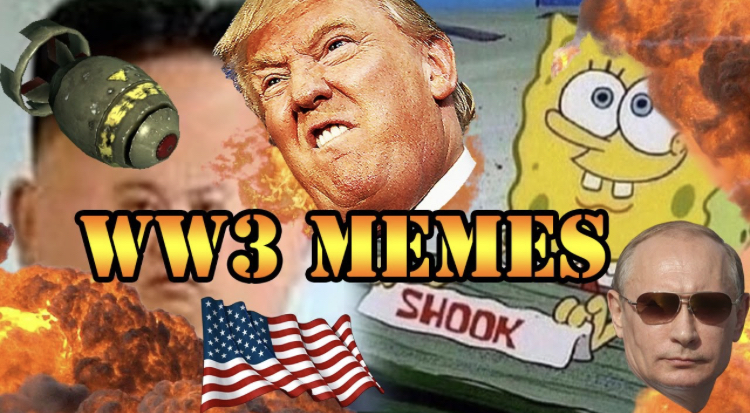World War III Memes: Insensitive?
February 3, 2020
Relations between the Middle East and the United States have always been complicated and riddled with highs and lows. Tensions have once again boiled to the surface with the death of Nawres Hamid, an American defense contractor.
Hamid was killed in Iraq during a rocket attack on an Iraqi military base. A militia group backed by Iran called Kataeb Hezbollah was said to be responsible for the attack. In response, the president quickly took the initiative to assassinate, influential military leader and commander of Iran’s secretive Quds Force, Gen. Qassem Soleimani, in an airstrike that also killed, leader of the Kataeb Hezbollah, Abu Mahdi al-Muhandis.
The Administration defined this action as preventative rather than antagonistic; however, the assassination has sparked uproar among Iranian citizens, causing riots and even fear of terrorist retaliation. Later in the week, Iran retaliated by attacking two locations in Iraq, the U.S. Embassy and air bases where U.S. forces were residing. Additionally, the Administration has expressed suspicions that an Iranian missile attack is to blame for a Ukrainian airplane that crashed over Tehran, despite originally being affirmed that it was caused by technical difficulties. Over the course of these events, fear of a looming World War III has rapidly materialized into reality.
Interestingly, however, the internet has taken this international news of a possible third world war and turned it into the year’s first trending meme. The memes, or as Merriam Webster defines them “amusing or interesting item[s] (such as a captioned picture or video)…that are spread widely online, especially through social media”, span across multiple different sites including Instagram, Tik Tok, and Twitter. The general basis of the memes most commonly surrounds being drafted. The jokes vary from there, expanding to not wanting to be drafted, not knowing what to do upon being drafted, and even excitement about one’s potential ‘kill count’.
Despite being a serious and potentially even dangerous issue, the world of social media continues to joke about the situation.
These memes have become so widespread in light of these recent events that it begs the question: Is turning difficult matters such as this into something funny something that will lead to insensitivity and desensitization or is it merely a coping mechanism that allows people to escape the horrors of the real world?
On one hand, people need to be able to look on the bright side in difficult scenarios; making jokes is a common method of doing this. For many, these memes may just be a harmless coping mechanism that distracts them from the horror of it all and allows them to lead a happier life, not in spite of but alongside, these events.
In an anonymous interview, the interviewee admits “…I think finding light in those dark things helps us to cope and get through them even though we’re scared…”
However, one can not ignore how easy it is for these types of jokes to be taken the wrong way. It is important to be conscious of how certain subjects may be seen from others’ perspectives.
While the memes themselves may not be made with the intention of harming anyone, the joking tone paired with this type of subject matter may cause certain ramifications. Intentional or not, these ramifications are very real and can affect all involved.
Those who are close to the issue but removed from the memes such as military personnel and civilians in war zones may find joking about a situation that to them is reality disrespectful, insensitive, and plain cruel.
Those separated from the issue but close to the memes are impacted as well. It is easy for those making and consuming these memes to lose perspective of the weight of the issue, forget that this is a serious concern that affects real people, and become insensitive or even desensitized.
make
“…sometimes when you make fun of things that are really serious, they become more insensitive and people become insensitive towards those serious conversations,” Anonymous explains.
So where is the line? How far is too far?
The anonymous interviewee puts it best, saying “I think once you have to question whether it is too far, that’s when you know [it is] and if you can’t find that line I think you should talk to somebody and [ask for their input].”
This is a serious issue. There is no getting around that. So it is important to remember to step back and find perspective. Remember that what you might find funny, is what someone else might find very real and very scary.
As Anonymous puts it, “Memes are supposed to be funny in a light-hearted comical way and these [memes] are covering a very dark and serious situation…” and while we might need them to ease our mind about what the future holds, we must be respectful and mindful of those who don’t.
Perspective is the antidote to insensitivity and we can’t afford to be insensitive.
